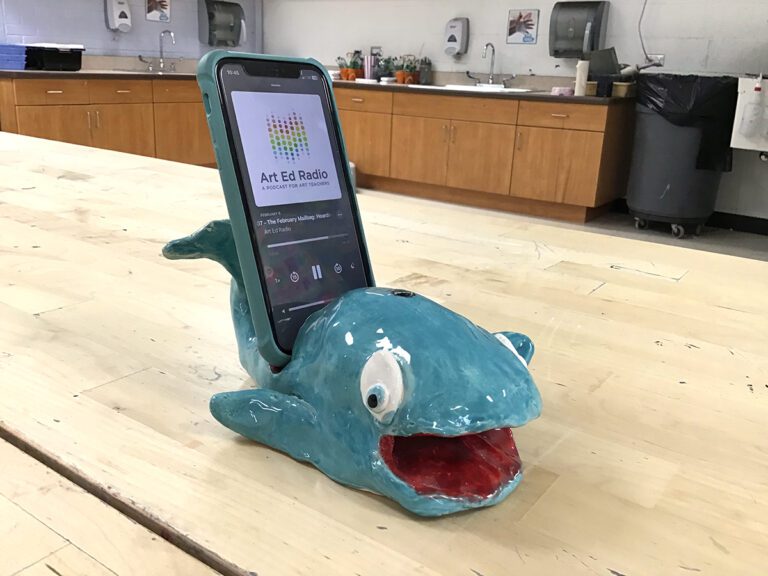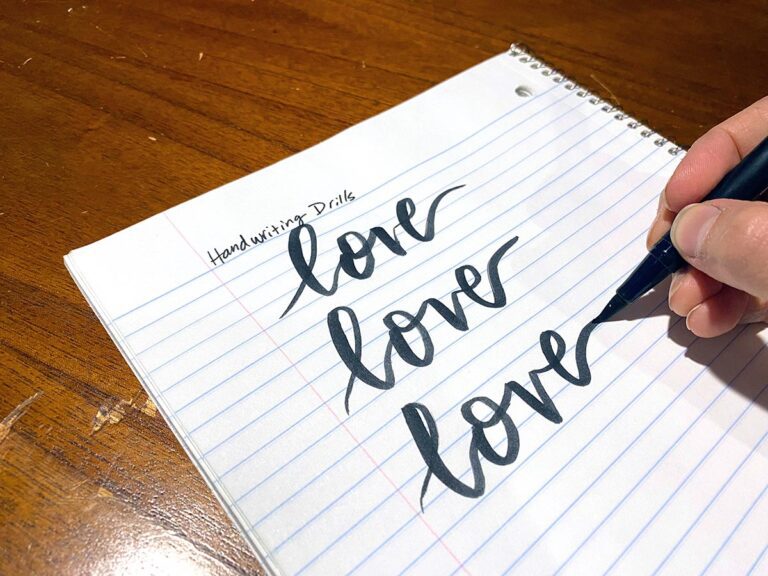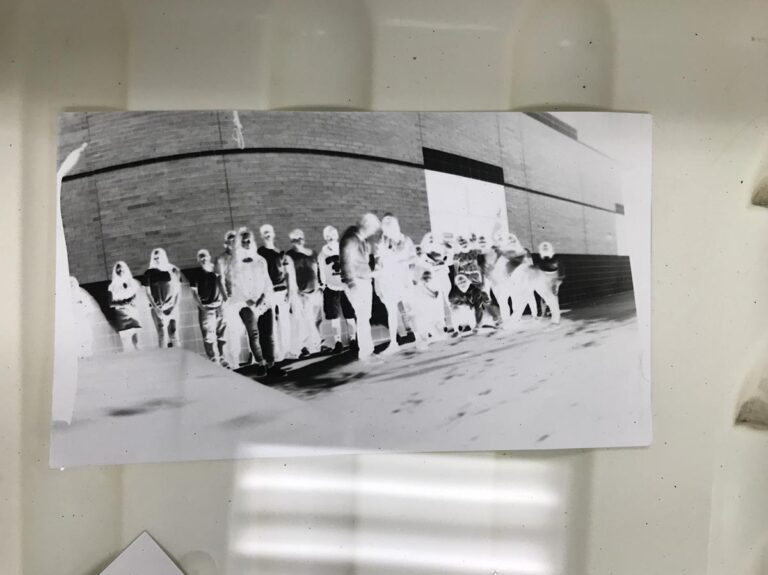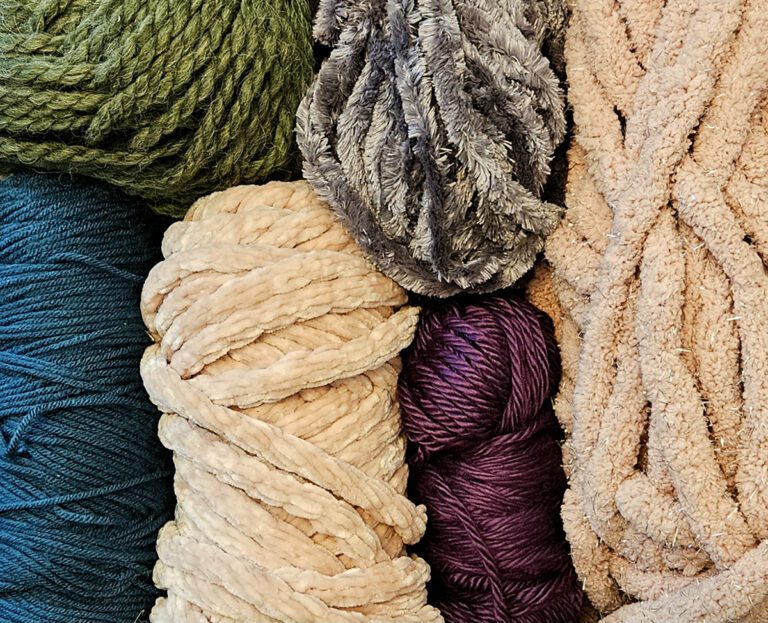All art educators strive to prepare their students for the future. A teacher may prepare their students for the next grade level, college program, or career experience. We want to make sure our students have the skills and tools needed to succeed. To do so, we need to present our students with the challenges and opportunities that mirror those they will face in the future.
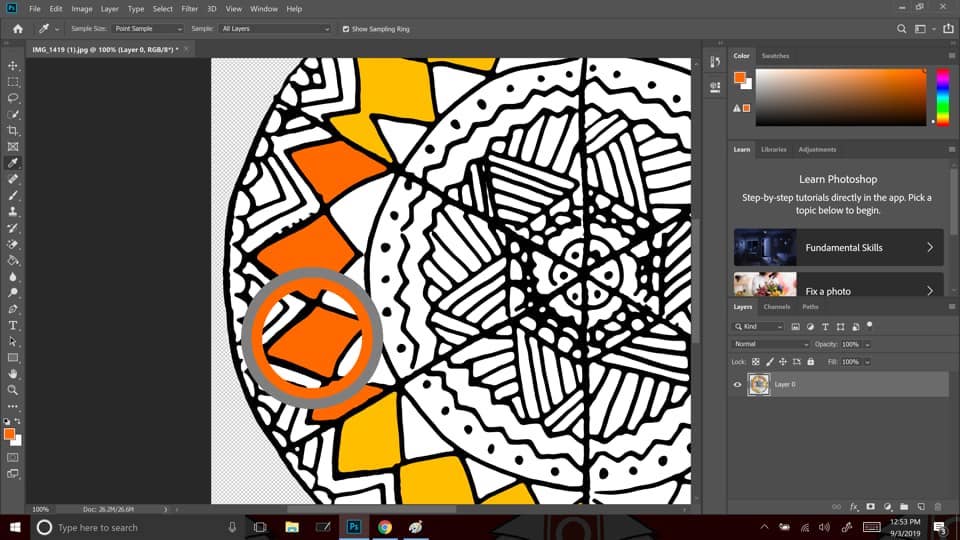
For example:
- A high school art teacher may require students to turn in a portfolio to prepare them for college entrance and scholarship opportunities.
- A middle school art teacher may require students to present facts about a famous artist to prepare them to research and communicate information.
- An elementary school art teacher may require students to collaborate on a sculpture to prepare them for successful group experiences.
All of our lessons are designed with the end in mind to help students grow and succeed in their creativity and artmaking.
As students get older, we can present them with opportunities working artists and graphic designers would experience. For example, art teachers are often asked to design images, logos, posters, etc., for school groups and events.
Rather than take on those projects ourselves, we can create learning experiences using graphic design.
Project 1: Update Motivational Posters
Chances are your school has a few motivational posters or graphics on display in the halls that could use some updating. The sentiment or message may still apply, but it may not speak to your current students the same way it did when it was created. Bring in the poster and ask your students for their thoughts.
Ask:
- What is this poster trying to say?
- Is there a better way to say it?
- How do the images or visuals reinforce the message?
- How could we update this poster to reflect today’s students?
Once you’ve had a bit of discussion and brainstorming, challenge your students to recreate this motivational poster in a new and inspiring way. Leave the directions fairly open-ended to allow for maximum creativity. As students are sketching, painting, collaging, or working digitally, check in with them to grasp where their vision is taking them.

While students may have great ideas on the visuals and text they want to include, they may need guidance on how to execute their overall design. Point out some things that worked with the original poster.
Design:
- What ties the design together?
- Is the font consistent?
- Is there a color scheme present?
- Are the figures positioned in the center? To the side?
- What is the area of emphasis?
These types of questions get your students to look critically at the work and apply concepts to their own design. When finished, you can display the new and improved posters around your school. You could select, or have the class select, outstanding students’ posters and have them photographed, scanned, and/or printed professionally to display permanently.
Project 2: Promote Events
Your school or community may have annual events to promote or celebrate with a shirt design. You can open this up as a contest for students or select a previous student artwork that fits the event theme or concept.
A Great eLearning Lesson Inspired by Design
Art teachers are constantly asked to design images for clubs and events. While this is a great opportunity for you to help out in the school community, a student’s design will always have a much greater impact.
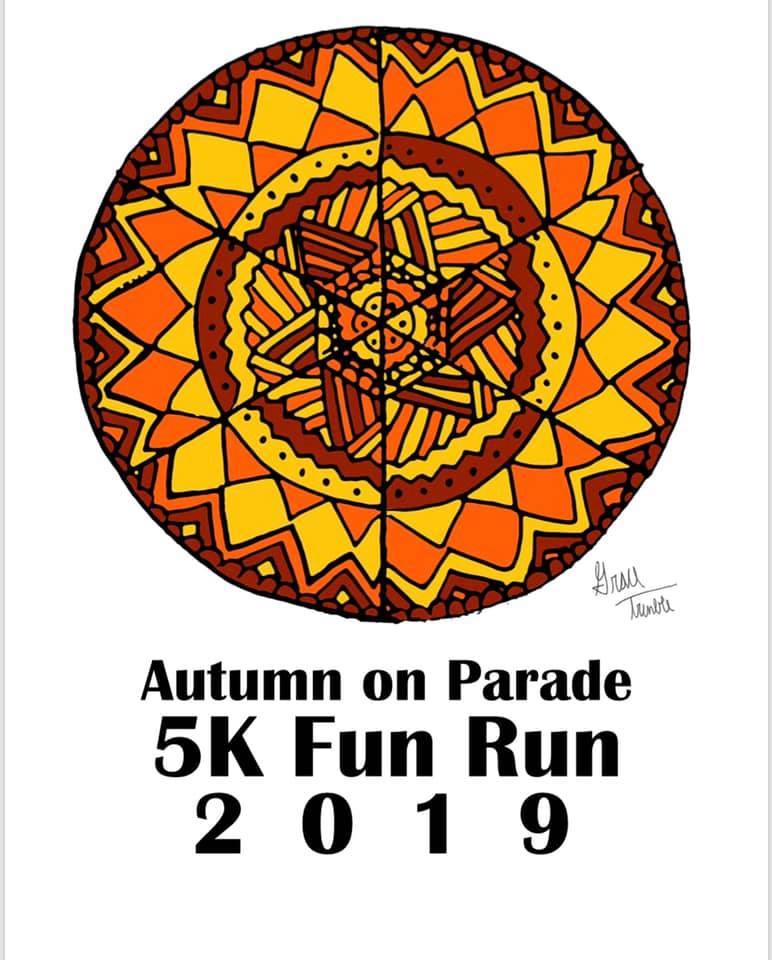
When you give students these opportunities, you are also showing them the faith you have in their abilities. You show that you trust them with the responsibility, and you believe they can create something great. However you select or reward a winning design, students will have a great sense of pride that their work was chosen for such an important event. They’ll love seeing their artwork printed over and over again and on the shirts, bumper stickers, buttons, etc., in their community.
Project 3: Small Designs with a Big Impression
We stress to our students that art is everywhere. We tell them how they are surrounded by visual imagery designed and created by an artist—from the shoes they wear to the design of the apps they interact with on their phones.
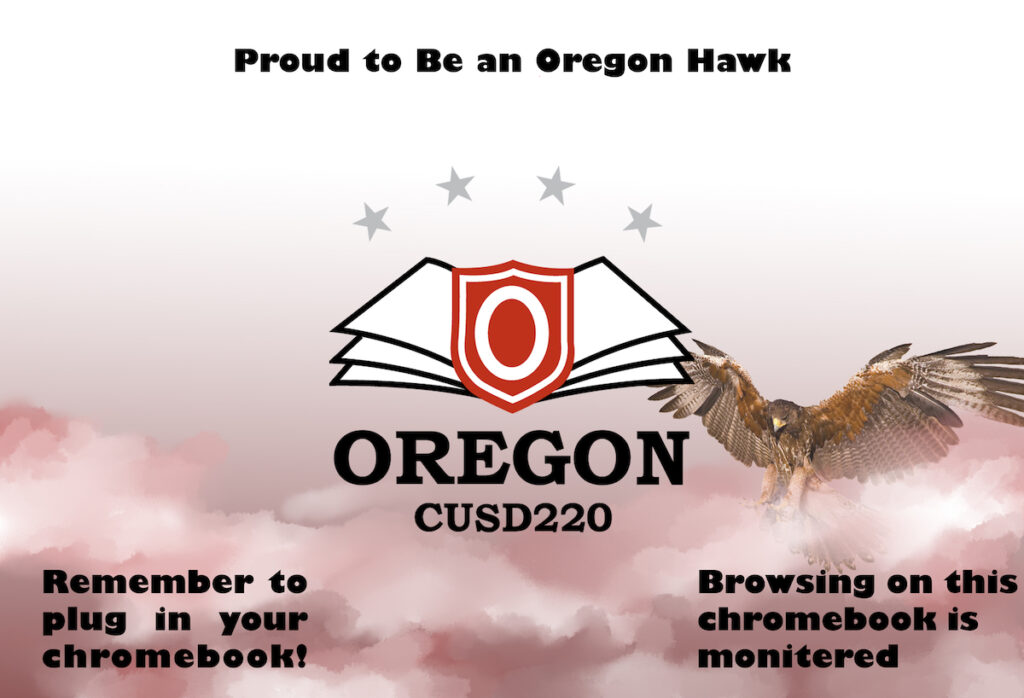
There are probably many small design opportunities in your school you can find if you look closely enough. Does the library offer bookmarks? Is a club looking to attract new members? Does the yearbook need more creative elements?
Keep your eyes open, and let your colleagues know that you are open to presenting your students with design work. This may or may not be an activity you open up to your entire class, as you have your set curriculum and projects planned. However, if an opportunity presents itself, you can share that with your high achieving students and/or students who finish projects early as a way to keep them engaged and give them more responsibility.
Exploring Visual Communication Through Graphic Design PRO Learning Pack
While designing labels for the school computer lab may not sound that exciting, the fact that students will see the winning design every time they log on is a cool opportunity.
Encourage your students to think creatively and propose their own design projects as well. More often than not, they will have ideas that you never would have thought of. Challenge them to be aware that design is all around them, and they can impact the school with their own designs.
Ask students to think about their own involvement in the school through sports, clubs, and activities. Have them design a team or club logo to tie the design work with students’ unique interests. Present their finished work to the faculty sponsors and see if there are any opportunities to showcase student work on any upcoming merchandise or materials.
Final Thoughts
We want to best prepare our students for the future with a strong understanding of the Elements of Art and Principles of Design. We do this through our various projects in different processes and art media. We can take this learning further when we present students with opportunities to have their designs and ideas used in the school and/or community.
What projects have you had your students design for the school?
How do you select a winning design?
What designs have you been asked to create for your school?
Magazine articles and podcasts are opinions of professional education contributors and do not necessarily represent the position of the Art of Education University (AOEU) or its academic offerings. Contributors use terms in the way they are most often talked about in the scope of their educational experiences.


